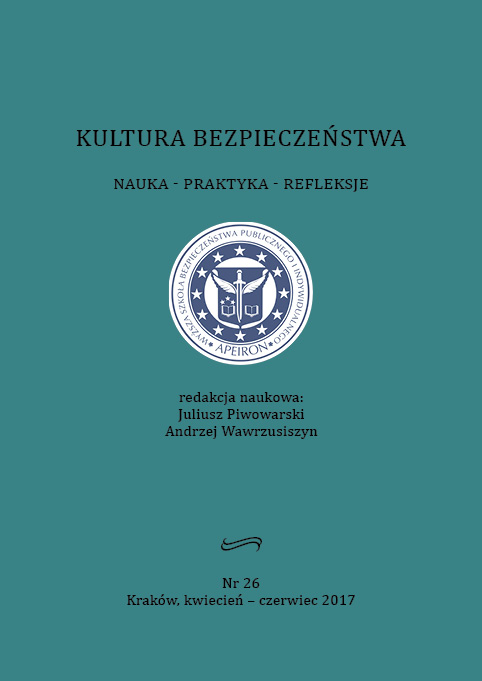Prawna regulacja organizacji rynku hazardowego w Polsce. Wybrane zagadnienia w świetle nowego projektu zmiany ustawy o grach hazardowych z 2009 r.
Legal regulations of gambling market’s organization in Poland. Selected issues in the light of new plans of amending the gambling law of 2009
Author(s): Eryk KosińskiSubject(s): Public Law, Crowd Psychology: Mass phenomena and political interactions, Substance abuse and addiction, Family and social welfare, EU-Legislation
Published by: Wyższa Szkoła Bezpieczeństwa Publicznego i Indywidualnego “Apeiron” w Krakowie
Keywords: gambling; gambling games; economic activity; state monopoly; economic freedom;
Summary/Abstract: The phenomenon of gambling finds its origins in the beginning of human race. The Polish act of 19 November 2009 on gambling games came into effect on the day of 1 January 2010 and “determines conditions of organization and principles of the conduct of business within the games of chance, mutual bids and games on machines” (art. 1 of the 2009 act). This present article is aimed at examination of the proposed amendment of above-mentioned act on gambling games in terms of the law of the European Union, especially in the light of the case law of the courts of the European Union. The scrutiny is provided under the formal-dogmatic method as far as an analysis of the text of legal document, together with the method of a critical analysis of legal writing and judicature of the appropriate courts. It must be underlined that according to the Court of Justice of the European Union (the European Court of Justice and the General Court) case law any restrictions adopted by the state towards the gambling sector of economy should limit the access of consumers to the gambling (to reduce the supply) in the so-called genuine and realistic way. Secondly, these regulations should have cohesive and systematic manner. The Tribunal repeatedly indicated, that in the situation when the given Member State is implementing a severe regulation and restrictions on the gambling sector, simultaneously conducting activity in this sector on a domestic market by itself, such state cannot refer to the public order and the necessity to hinder an access to gambling. The question of budget receipts is not meaningless in such terms, neverttheless it cannot constitute the only, or the main, justification for infringements of the fundamental rights and liberties of the Treaty on the Functionig of the European Union (see cases: C-275/92 brothers Schindler, C-124/97 Läärä and others, C-67/98 Zenatti, C-6/01 Anomar and others, C-243/01 Gambelli and others, joined cases C-338/04, C-359/04 and C-360/04 Placanica and others). In conclusion, there may be a positive opinion articulated as far as opening of the possibility to conduct games on machines outside casinos. The withdrawal from the prohibition of organising games outside casinos seems to be rational. However there are certain items which deserves criticism, like an extension of the state monopoly in the area of gambling over the games on machines. Moreover, it is not reasonable to charge the special state treasury’s company with the of the organization of the mentioned monopoly in games on machines. It is firstly because of additional extra costs, the lack of the knowledge of the very specific market, the lack of nation-wide structures and the logistics of the undertaking (storing machines, transportation, repairment, service center, devices etc.), and secondly due to reducing the economic freedom of private entrepreneurs which legally operate on this market for last decades. It appears that he Polish private capital shall not be replaced by the public economic initiative, and other measures as to achieve the public goals shall be involved, like certain proper fiscal mechanisms in the area of the gambling sector (appropriately constructed taxes guaranteeing budget revenue at an expected level).
Journal: Kultura Bezpieczeństwa. Nauka-Praktyka-Refleksje
- Issue Year: 2017
- Issue No: 26
- Page Range: 172-197
- Page Count: 26
- Language: Polish

